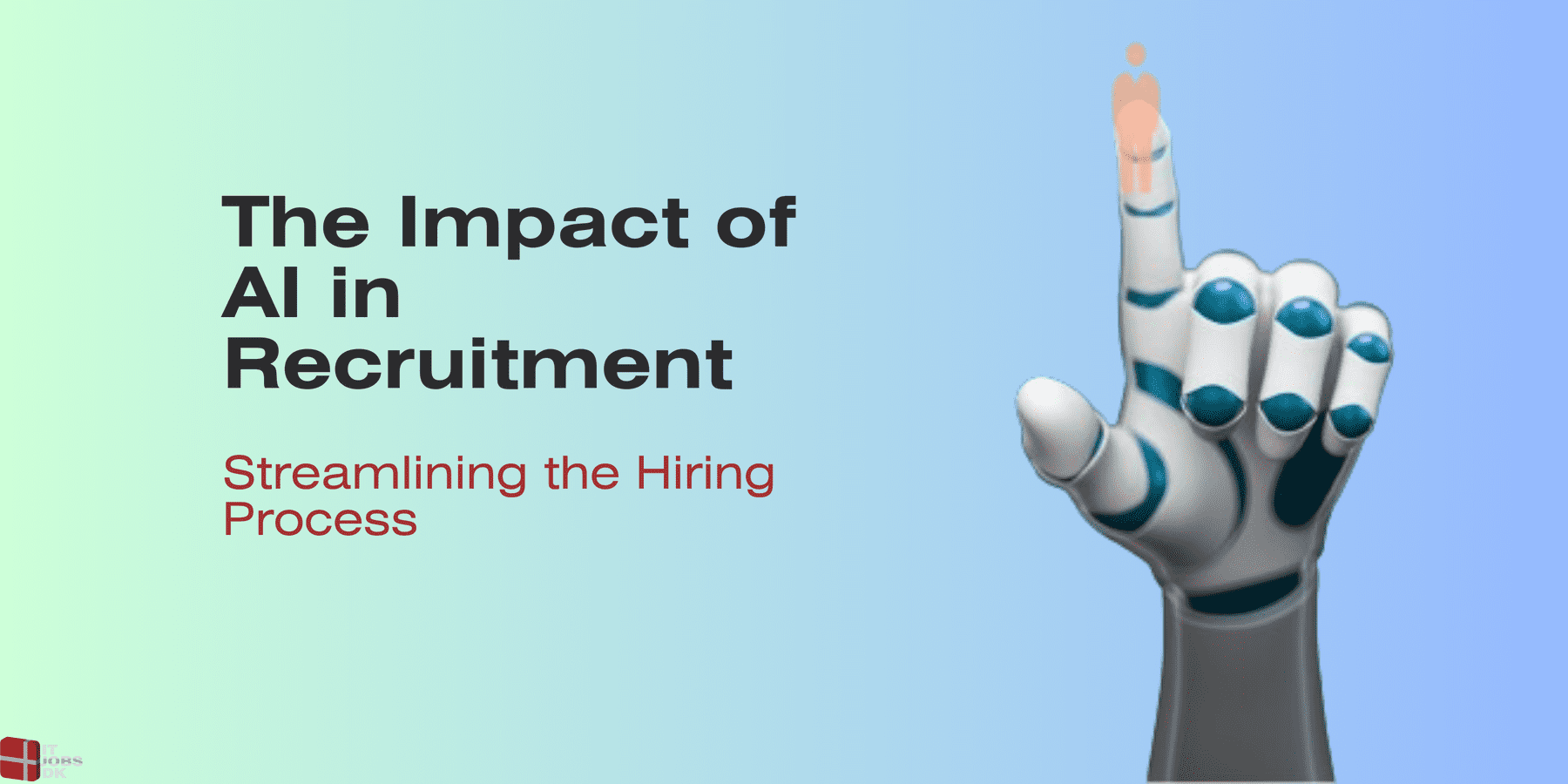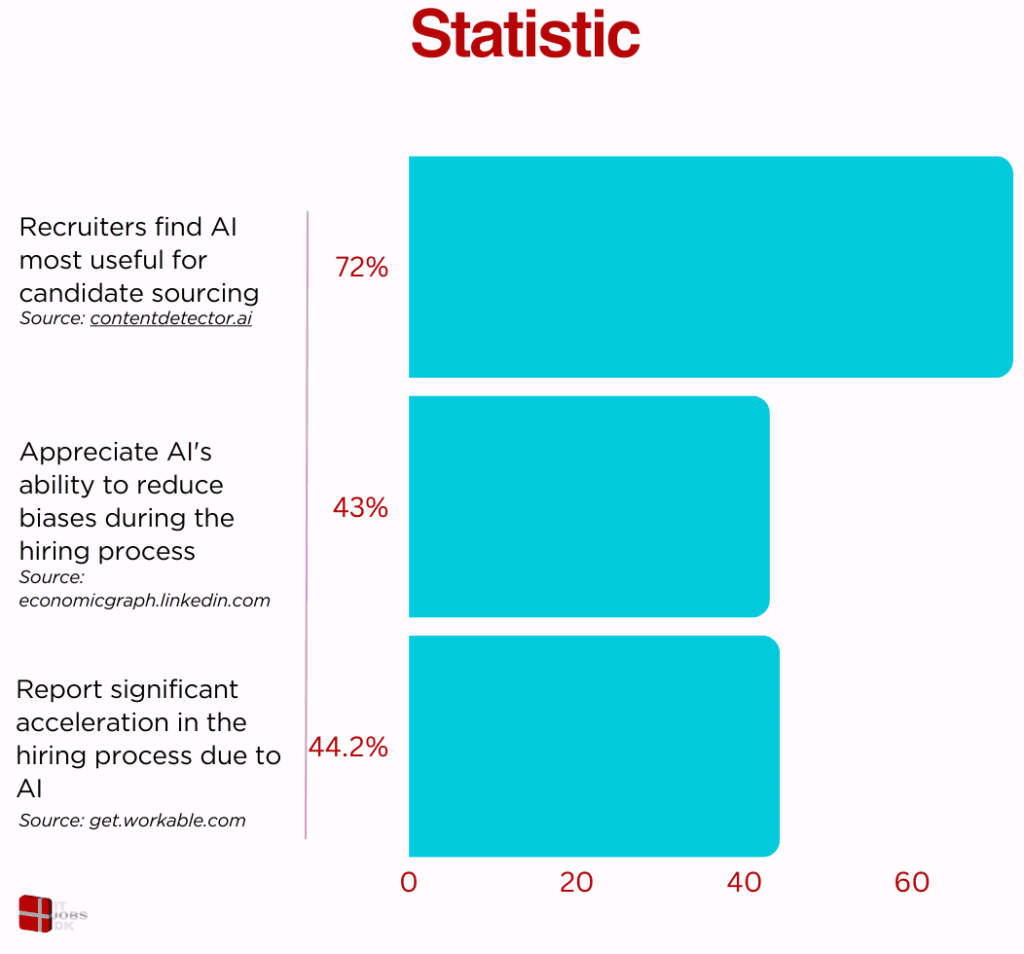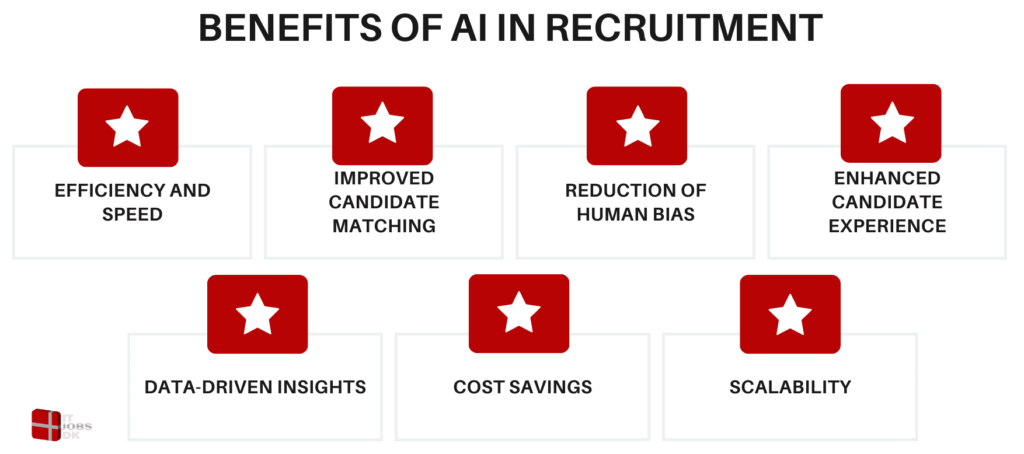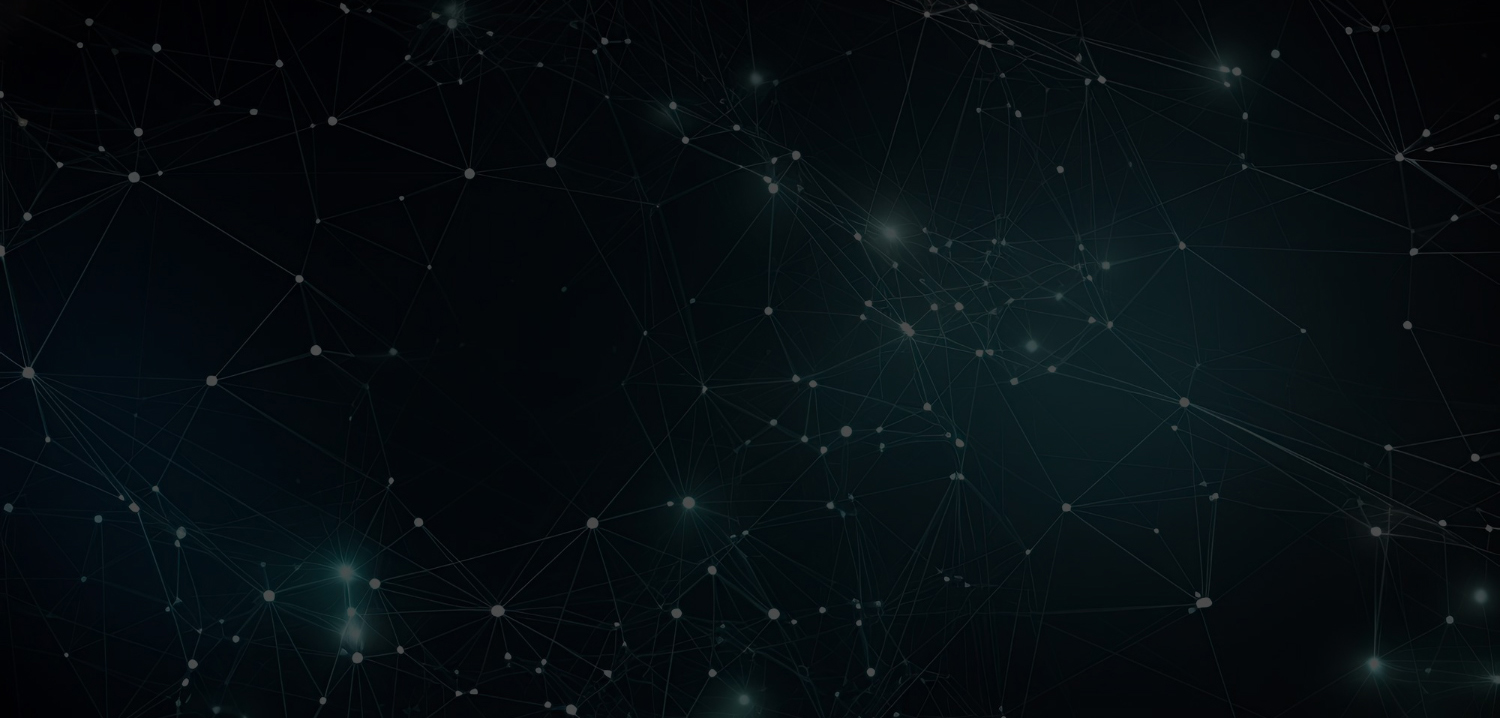
Artificial intelligence (AI) has become a transformative force in the recruitment industry, offering significant advancements in efficiency and effectiveness. The integration of AI in recruiting has streamlined various aspects of the hiring process, such as resume screening, candidate matching, and interview scheduling. This technology helps recruiters save time, reduce human bias, and improve the quality of hires.
Incorporating AI in recruiting has shown remarkable benefits. According to recent reports, 67% of hiring decision-makers highlight time-saving as a primary advantage, while 43% appreciate AI’s ability to reduce biases during the hiring process. The global AI recruitment market is projected to reach $942.3 million by 2030, reflecting its growing importance and adoption across industries.
For IT jobs in Denmark, AI is especially valuable due to the competitive nature of the field. AI-driven tools can quickly analyze large volumes of data, ensuring that recruiters find the best candidates efficiently. Moreover, AI enhances diversity and inclusion efforts by mitigating unconscious biases and providing more equitable hiring practices

Overview of AI Technologies Used in Recruitment
Artificial intelligence (AI) is revolutionizing the recruitment landscape, offering a variety of technologies that streamline and enhance the hiring process. These technologies are designed to automate repetitive tasks, improve candidate matching, and reduce biases, making recruitment more efficient and effective. Here’s an overview of some key AI technologies used in recruitment:
- AI-Powered Resume Screening: AI resume screening tools automatically review and rank resumes based on predefined criteria, significantly reducing the time recruiters spend on this task. These tools use natural language processing (NLP) to understand and interpret the content of resumes. For instance, an AI system can quickly scan through Denmark CV databases, identifying candidates that best match the job requirements based on keywords and experience levels.
- Chatbots: AI-driven chatbots are increasingly used to interact with candidates throughout the recruitment process. These chatbots can answer frequently asked questions, schedule interviews, and even conduct initial screenings. They provide a seamless candidate experience by offering instant responses and support, thus improving engagement and reducing drop-off rates.
- Predictive Analytics: Predictive analytics in AI leverages data to forecast a candidate’s potential success within a company. By analyzing historical hiring data and performance metrics, AI can identify patterns that correlate with high performance and long-term retention. This technology helps recruiters make data-driven decisions, ensuring they select candidates who are more likely to thrive in their roles.
- Video Interviewing: AI-powered video interviewing platforms assess candidates through recorded video responses. These platforms use facial recognition and sentiment analysis to evaluate a candidate’s body language, tone of voice, and word choice. This helps in providing a more holistic view of the candidate beyond their resume, making the assessment process more comprehensive and unbiased.
- Intelligent Candidate Matching: AI systems use machine learning algorithms to match candidates with job openings based on their skills, experiences, and preferences. This technology considers various factors such as cultural fit, career aspirations, and previous job performance to ensure the best match. It helps in finding the right candidates quickly, reducing the time-to-hire and improving the overall quality of hires.
- Talent Rediscovery: AI talent rediscovery tools scan through existing databases of previous applicants to find suitable candidates for new job openings. This ensures that potential candidates who might have been overlooked in the past are given another chance, maximizing the use of the company’s talent pool and reducing recruitment costs.

By integrating these AI technologies, companies can significantly enhance their recruitment processes, ensuring they attract and retain top talent efficiently. The use of AI in recruiting is especially beneficial in competitive markets, such as IT jobs in Denmark, where finding the right candidates swiftly can make a significant difference in business performance.
How to Use AI in Recruitment
Implementing AI in recruitment involves a series of strategic steps to optimize the hiring process, enhance candidate experience, and improve overall efficiency. Here’s a comprehensive guide on how to effectively use AI in recruitment:
- Identify Recruitment Needs: Start by understanding the specific challenges and inefficiencies in your current recruitment process. Determine areas where AI can have the most impact, such as resume screening, candidate sourcing, or interview scheduling.
- Choose the Right AI Tools: Select AI tools that align with your recruitment needs. Popular options include:
- Resume Screening Software: Tools like HireVue and Pymetrics use AI to screen resumes quickly and efficiently, identifying the best matches based on predefined criteria.
- Chatbots: Implement chatbots like Mya or Xor to automate initial candidate interactions, answer common queries, and schedule interviews.
- Predictive Analytics Platforms: Use platforms such as HiredScore or Ideal to leverage predictive analytics for better candidate matching and forecasting potential success in roles.
- Integrate AI with Your Existing Systems: Ensure that your chosen AI tools seamlessly integrate with your existing Applicant Tracking System (ATS) or Human Resource Management System (HRMS). This integration allows for smooth data flow and a unified recruitment process.
- Train Your Team: Provide training for your recruitment team to understand and effectively use AI tools. This includes understanding how to interpret AI-generated insights and how to use AI recommendations to make informed hiring decisions.
- Automate Resume Screening: Use AI to automate the initial resume screening process. AI-powered resume screening tools can analyze large volumes of resumes, highlighting the most qualified candidates based on keywords, experience, and other criteria. This is particularly useful when dealing with extensive databases, such as Denmark CV collections.
- Enhance Candidate Engagement: Deploy AI chatbots to enhance candidate engagement. Chatbots can handle candidate inquiries 24/7, provide updates on application status, and schedule interviews, ensuring a smooth and responsive candidate experience.
- Implement Predictive Analytics: Utilize predictive analytics to identify the best candidates and predict their potential success within your organization. These tools can analyze historical hiring data and performance metrics to provide data-driven insights, helping recruiters make more informed decisions.
- Conduct AI-Powered Video Interviews: Use AI-powered video interviewing platforms to assess candidates. These platforms can evaluate candidates’ responses, body language, and tone of voice, providing a more comprehensive assessment than traditional interviews.
- Continuously Monitor and Optimize: Regularly monitor the performance of AI tools and gather feedback from your recruitment team. Use this data to optimize and refine your AI processes, ensuring they continue to meet your recruitment goals effectively.
- Ensure Ethical AI Use: Be mindful of the ethical implications of using AI in recruitment. Ensure that AI tools are designed to minimize biases and promote fair hiring practices. Regularly audit AI processes to ensure compliance with ethical standards and legal requirements.
By following these steps, companies can leverage AI to enhance their recruitment processes, ensuring they attract and retain the best talent in a competitive job market.
Key Applications of AI in Recruitment
Here are some key applications of AI tools in recruitment:
- Resume Screening and Parsing: AI tools in recruitment can automate the initial screening of resumes, significantly reducing the time and effort required by recruiters. These tools, such as HireVue and Pymetrics, use natural language processing (NLP) to parse resumes, identify relevant skills, and rank candidates based on predefined criteria. This helps in quickly shortlisting the best-fit candidates from a large pool.
- Chatbots and Candidate Engagement: AI-driven chatbots like Mya and Xor enhance candidate engagement by providing instant responses to inquiries, scheduling interviews, and updating candidates on their application status. These chatbots operate 24/7, ensuring that candidates receive timely information and support, thereby improving their overall experience and reducing dropout rates during the recruitment process.
- Predictive Analytics for Candidate Matching: Predictive analytics tools such as HiredScore and Ideal analyze historical hiring data and candidate profiles to predict which candidates are most likely to succeed in a given role. By leveraging machine learning algorithms, these tools provide data-driven insights that help recruiters make more informed decisions and improve the quality of hires.
- Video Interviewing and Analysis: AI-powered video interviewing platforms like HireVue and Spark Hire facilitate remote interviews by analyzing candidates’ responses, facial expressions, and vocal tones. These platforms use AI to assess soft skills, cultural fit, and overall suitability for the role, providing a comprehensive evaluation beyond traditional resume screening.
- Talent Rediscovery: AI tools can scan existing databases of past applicants to identify candidates who might be a good fit for new job openings. This talent rediscovery process ensures that previously overlooked candidates are reconsidered for suitable roles, maximizing the use of the company’s existing talent pool and reducing recruitment costs.
- Automated Interview Scheduling: AI-powered scheduling tools like Clara and x.ai synchronize with recruiters’ and candidates’ calendars to automate the scheduling process. This eliminates the back-and-forth communication typically involved in arranging interviews, saving time and improving efficiency for both recruiters and candidates.
- Employee Onboarding: AI tools also play a crucial role in onboarding new hires. Chatbots and AI-driven platforms can guide new employees through the onboarding process, providing them with necessary information, answering their questions, and helping them acclimate to the company culture more quickly and effectively.
- Diversity and Inclusion: AI can help promote diversity and inclusion in recruitment by reducing unconscious biases in the hiring process. Tools like Pymetrics use objective data to evaluate candidates’ potential, ensuring that hiring decisions are based on merit rather than subjective judgments. Additionally, AI-driven analytics can identify trends and gaps in diversity, helping organizations to implement more inclusive hiring practices.
By integrating these AI applications into their recruitment strategies, companies can streamline their hiring processes, enhance candidate experience, and make more data-driven decisions.
Benefits of AI in Recruitment
The integration of AI in the recruitment process offers numerous benefits, transforming how companies attract, evaluate, and hire talent. Here are some of the key advantages:
- Efficiency and Speed: AI significantly accelerates the recruitment process by automating time-consuming tasks such as resume screening, interview scheduling, and candidate sourcing. AI tools can quickly analyze large volumes of applications, identifying the most suitable candidates in a fraction of the time it would take a human recruiter. This efficiency allows recruiters to focus on more strategic activities and reduces the time-to-hire.
- Improved Candidate Matching: AI in recruitment process leverages machine learning algorithms and predictive analytics to match candidates with job openings based on their skills, experiences, and qualifications. This improves the accuracy of candidate-job fit, leading to better hiring outcomes and higher employee retention rates.
- Reduction of Human Bias: One of the significant benefits of AI is its potential to minimize unconscious bias in the hiring process. AI-driven tools evaluate candidates based on objective criteria and data, reducing the influence of personal biases and promoting a fairer and more inclusive recruitment process. This can help companies build more diverse and inclusive teams.
- Enhanced Candidate Experience: AI-powered chatbots and virtual assistants provide candidates with real-time updates and support throughout the recruitment process. These tools can answer frequently asked questions, schedule interviews, and provide feedback, ensuring that candidates remain engaged and informed. A positive candidate experience can enhance the employer’s brand and attract top talent.
- Data-Driven Insights: AI tools provide recruiters with valuable data and insights, enabling them to make more informed decisions. Predictive analytics can identify trends and patterns in hiring, helping recruiters optimize their strategies and improve the quality of hires. Additionally, AI can provide actionable feedback on the recruitment process, highlighting areas for improvement.
- Cost Savings: By automating routine tasks and improving the efficiency of the recruitment process, AI can lead to significant cost savings. Companies can reduce the need for extensive recruitment teams and minimize the costs associated with lengthy hiring processes. The use of AI can also reduce turnover rates by ensuring better candidate-job matches, further contributing to cost savings.
- Scalability: AI-powered recruitment tools can easily scale to handle large volumes of applications, making them ideal for companies experiencing rapid growth or seasonal hiring spikes. This scalability ensures that the recruitment process remains efficient and effective, regardless of the volume of candidates.

Case Studies and Examples: Companies Successfully Using AI in Recruitment
Several companies have successfully integrated the use of AI in recruitment, demonstrating significant improvements in efficiency, candidate experience, and overall hiring outcomes. Here are a few notable examples:
- Hilton: Hilton Hotels has implemented AI to streamline their recruitment process. By using AI tools for resume screening and candidate matching, Hilton reduced their time-to-fill positions by 90%. This efficiency allowed them to quickly identify and hire the best candidates from a large pool of applicants.
- Unilever: Unilever leverages AI to assess entry-level candidates through digital interviews and game-based assessments. AI algorithms evaluate candidates’ performance and predict their potential success within the company. This innovative approach has led to a more diverse and inclusive hiring process, with Unilever reporting a significant increase in candidate satisfaction.
- IBM: IBM uses AI-driven tools to enhance their recruitment process, particularly in sourcing and screening candidates. AI helps IBM identify candidates who are the best fit for technical roles by analyzing vast amounts of data and providing insights that improve hiring decisions. This has resulted in a more efficient and effective recruitment strategy.
These case studies highlight the transformative impact of the use of AI in recruitment, showcasing how companies can achieve better hiring outcomes through technological innovation.
Ready to Transform Your Recruitment Process With AI?
Contact us now to learn how our AI-driven solutions can help you find the perfect candidates faster and more efficiently.


 Previous Post
Previous Post Next Post
Next Post